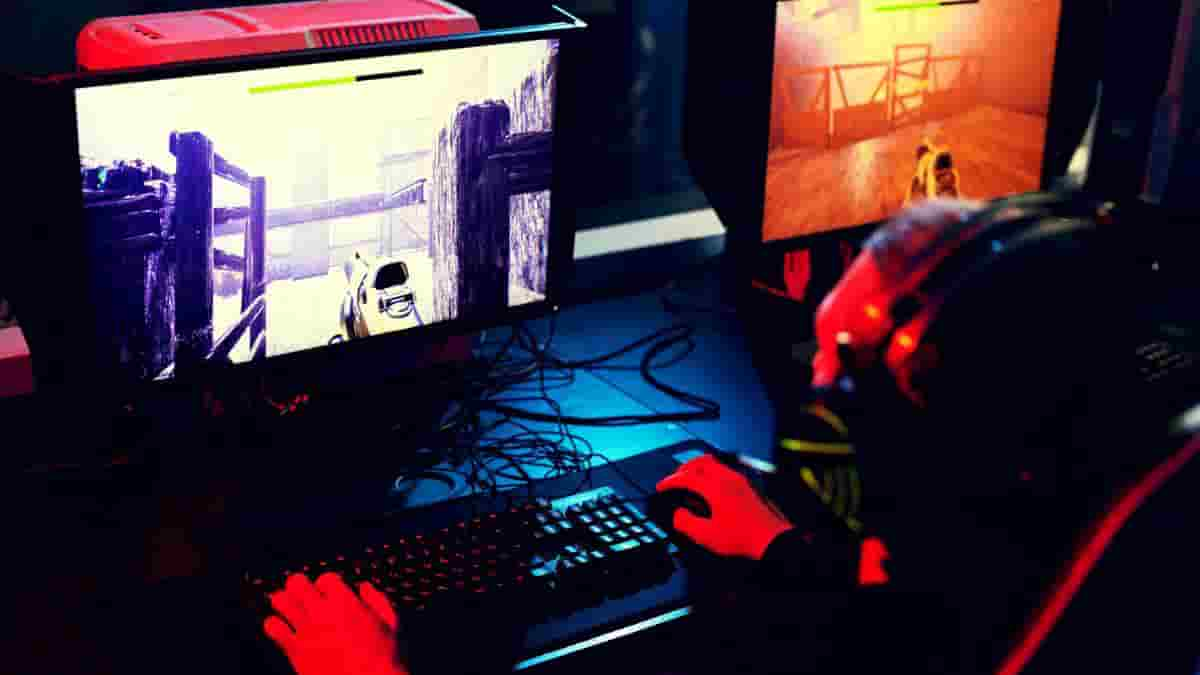“The game of Chess is not merely an idle amusement. Several very valuable qualities of the mind, useful in the course of human life, are to be acquired or strengthened by it, so as to become habits, ready on all occasions…we learn by Chess the habit of not being discouraged by present bad appearances in the state of our affairs, the habit of hoping for a favourable change, and that of persevering in the search of resources.” So wrote Benjamin Franklin in his essay The Morals of Chess in 1786.
A recent study from researchers at the University of Surrey extends such observations into the online gaming world. According to the study, online gaming behaviour can encourage gamers to develop various soft skills that can help them with training to support their career goals.
Previously, little was known about online gaming behaviour based on games played and how people’s career interests are reflected in what they play. Surrey researchers investigated the gaming behaviour of 16,033 participants in collaboration with Game Academy Ltd to investigate how the hobby could support video game players’ future career planning and professional training.
The global gaming market was valued at USD 198 billion in 2021 and is expected to reach USD 340 billion by 2027.
Planning Skills vs Spatial Skills
The participants each played a different number of games on Steam, a digital distribution service and storefront for video games. Researchers looked at the 800 most popular games and only included participants who provided gender and job information.
IT specialists and engineers were found to play puzzle platforms, which may improve their spatial abilities. Managers were drawn to action roleplay games that required organizational and planning skills, while engineers were drawn to strategy games that frequently required problem-solving and spatial skills.
Females preferred single-player games, while males preferred shooting games.
“In recruitment processes, the best candidates may be missed because organisations do not consider the soft skills that have been gained through non-work activities (for example, online gaming),”
said lead author Dr Anna-Stiina Wallinheimo, Cognitive Psychologist.
Gaming and Employability
As a result of the research, the authors believe that applicants’ online gaming experiences should be showcased because these acquired soft skills can help develop their all-around strengths for the job at hand.
“By understanding to what extent career interests are reflected in game playing, we may be able to demonstrate more clearly how these align with career interests and encourage employers to understand the value of the soft skills associated with gaming. Our research could also inspire game developers to work on honing these soft skills more closely in their design,”
said co-author Dr Anesa Hosein, Associate Professor in Higher Education at the University of Surrey.
Universities, for example, could allow students to reflect on and incorporate gaming into their career development, as well as consider how gaming can be included in the curriculum to improve alignment between students’ learning, career aspirations, and extra-curricular gaming interests.
Enhanced Decision Making
A separate study from Georgia State University added more evidence to the positive career profiles of gamers. According to the investigation, frequent video game players have better sensorimotor decision-making skills and higher activity in key brain regions than non-players.
“Video games are played by the overwhelming majority of our youth more than three hours every week, but the beneficial effects on decision-making abilities and the brain are not exactly known,”
said lead researcher Mukesh Dhamala.
There were 47 college-aged participants in the Georgia State study, of whom 28 were classified as regular video game players and 19 as non-players. The participants lay inside an FMRI machine equipped with a mirror to view a cue followed by a display of moving dots.
Participants were asked to press a button in either their right or left hand to indicate the direction the dots were moving. They were instructed to refrain from pressing either button if there was no directional movement.
Sensation, Perception, and Action Mapping
The study discovered that video game players responded more quickly and accurately. According to analysis of the resulting brain scans, the differences were linked to increased activity in specific brain regions.
These findings suggest that playing video games may enhance a number of the subprocesses for sensation, perception, and action mapping to enhance decision-making abilities.
“These findings begin to illuminate how video game playing alters the brain in order to improve task performance and their potential implications for increasing task-specific activity,”
wrote the authors.
The study also points out that there was no trade-off between response time and accuracy; video game players performed better on both counts.
References:
- Wallinheimo, A.-S., Hosein, A., Barrie, D., Chernyavskiy, A., Agafonova, I., & Williams, P. (2023). How Online Gaming Could Enhance Your Career Prospects. Simulation & Gaming, 54(1), 28–44.
- Timothy Jordan, Mukesh Dhamala. Video game players have improved decision-making abilities and enhanced brain activities. Neuroimage: Reports, 2022; 2 (3): 100112. DOI: 10.1016/j.ynirp.2022.100112
